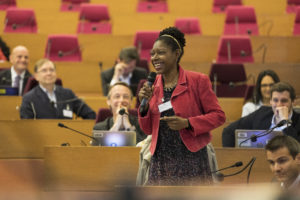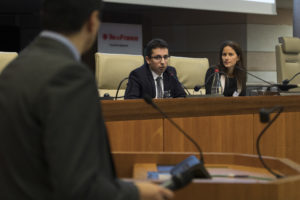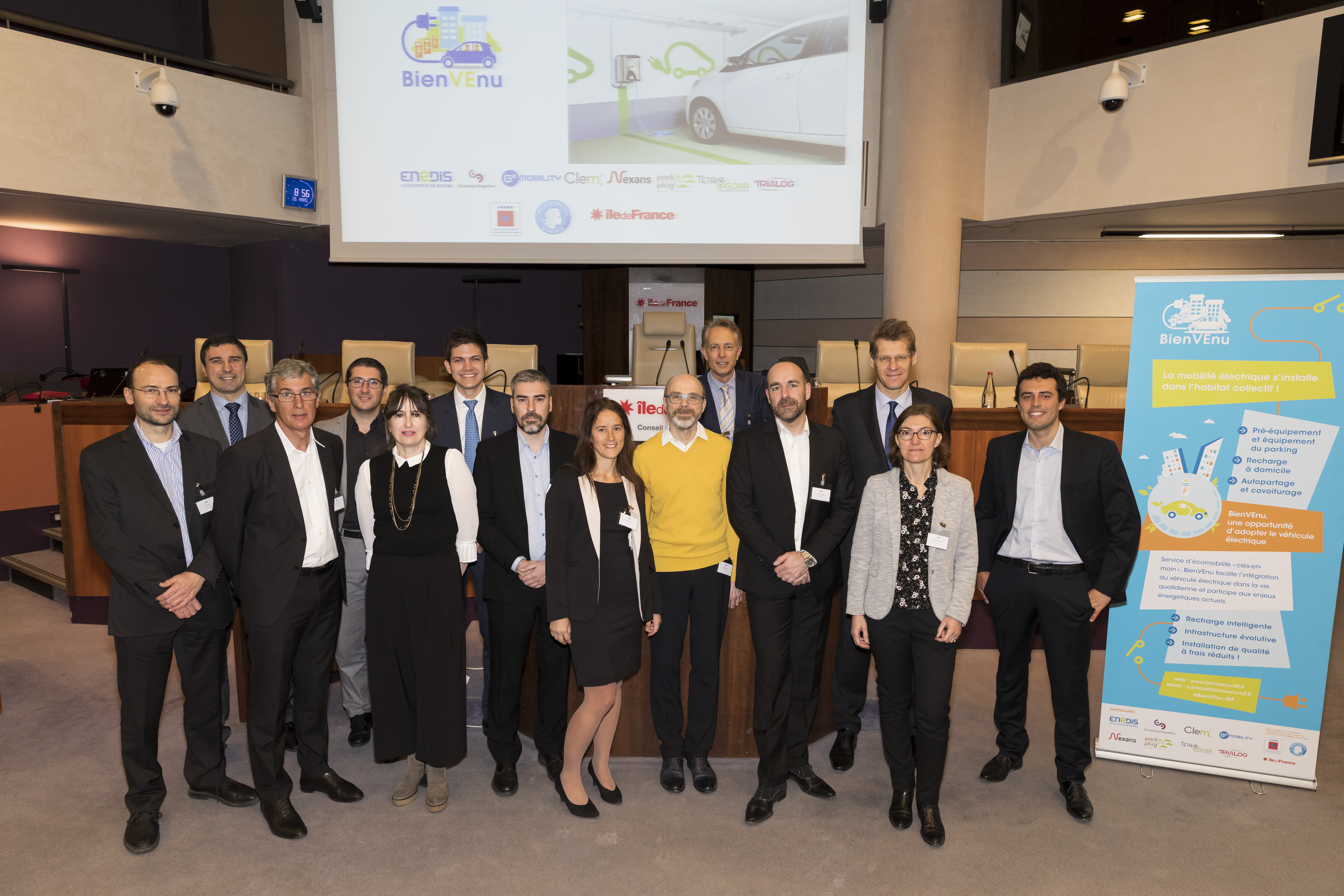After 3 years and 6 months of experimentation in Ile de France, BienVEnu, the experimentation project for an innovative charging solution in the collective residential sector, has ended.
On Tuesday 26 March, the closing event of the project was held in the hemicycle of the Ile-de-France Regional Council. The opportunity for the project partners to share the responses provided by the BienVEnu solution to the collective challenge of developing electric mobility in the collective residential sector.
Developing sustainable mobility models
The environmental challenges make it essential to evolve mobility models towards more environmentally friendly solutions.
Electric mobility is a solution that can be used to combat climate change and improve people’s living conditions. Indeed, the development of the use of electric vehicles contributes to the reduction of greenhouse gas emissions, the improvement of air quality, the reduction of noise pollution and the development of alternative modes of transport such as car-sharing.
Issue: to facilitate charging in urban collective residential communities
Today, most electric vehicles are charged at home or at work and, in urban areas, more than half of all households[1] live in a collective residential area. Under these conditions, and to guarantee the development of the electric vehicle in the collective residential sector, it is necessary to develop a simplified pathway to install and use a charging point, by a resident, in this type of housing.
However, the cost of purchasing the electric vehicle, in addition to the cost of the charging station and its installation, can constitute a major obstacle to the acquisition of an electric vehicle. In addition, the installation of recharging points in existing collective residential buildings remains complex to this day.
This is why it was essential that the actors of the ecosystem come together to meet these challenges, and, thanks to the BienVEnu project, co-design and develop a modular, simple and attractive solution for the installation and operation of load points for lessors and co-ownerships.
BienVEnu : a simple solution for installing charging stations and car-sharing of electric vehicles in collective housing
The BienVEnu project consisted in designing and developing a solution for the installation and intelligent management of charging stations in collective residential buildings for electric vehicles. The solution has been deployed on ten buildings in the Paris area.
For most of the real estate players (co-ownership, lessors, etc.) who have experimented the project’s solution, BienVEnu comes out to be a model adapted to collective housing. Both technically and commercially, it reduces the obstacles associated with the acquisition of an electric vehicle.
The complementary car-sharing solution proposed as part of the BienVEnu experiment was particularly popular within the project’s ecosystem. Both by individuals and lessors. Indeed, it makes it possible to meet multiple mobility needs in urban areas. Car-sharing enables to overcome the weaknesses that public transports can have, to solve the question of purchasing a vehicle and therefore the problems of parking and traffic. Car sharing provides a sustainable mobility solution that is increasingly sought in urban areas.

Copyright © Julien KNAUB / SIPA PRESS
Nadia Perrochaud-Coute, joined the experiment following the breakdown of her diesel vehicle, which she did not want to replace. After testing the car-sharing service, she quickly adopted it: “The solution offered flexibility and ease of travel. The service is perfectly adapted to daily travel, to go to leisure or shopping… It is very easy to use and the price is attractive.”
Intelligent control of electric vehicle charging
The BienVEnu Project introduces an innovative solution for managing electric vehicle charging based on service contracts that guarantee a gradual restoration of battery life. This is achieved by committing to a number of kWh charged during a fixed period of time and the remaining kWh delivered without a duration commitment. Thus, depending on the use, the user will choose the contract that suits him best (Premium, Standard, Eco, Eco-nuit). The abundance of choices defines the flexibility of the optimization algorithm.
This approach makes it possible to limit the power subscribed for the recharge cluster by maintaining a quality of service in accordance with the need or contract chosen by the users.
In addition, the solution allows the centralization of consumption information from each charging point and its follow-up to allow residents to be re-invoiced according to their use. This relieves building managers of the need to monitor consumption and its distribution.
Expertise and technology for the electric vehicle ecosystem
Following its research on hybrid vehicles at the end of the 1990s, TRIALOG has been developing since 2009 the expertise and technology around intelligent charging necessary to enable the actors of the electric vehicle ecosystem to meet the expectations of green growth.
For the BienVEnu experiment, TRIALOG managed the definition of the solution carried out by all the partners. It ensured that standards were used to guarantee the solution’s interoperability with most of the charging stations available on the market. TRIALOG has also introduced a laboratory validation process for implementations before their deployment in the field.

Copyright © Julien KNAUB / SIPA PRESS
At the closing event, on Tuesday 26 March, Mourad Tiguercha, Director, in charge of the Electric Mobility and Cybersecurity Units at TRIALOG, underlines the importance of the interoperability of equipment, systems and services for the resilience and adoption of EV charging solutions in the collective residential sector: “We had to think about a solution that is not closed, that infrastructures are designed to receive standard equipment”.
Thanks to BienVEnu, TRIALOG has continued to establish itself within the electric mobility ecosystem. TRIALOG is now a major player in electric mobility at the national level and is positioned as a facilitator and system integrator for the entire value chain.
[1] Sources : Insee, Service de la donnée et des études statistiques (SDES) – ministère de la Transition écologique et solidaire, estimations annuelles du parc de logements au 1er janvier 2018.


